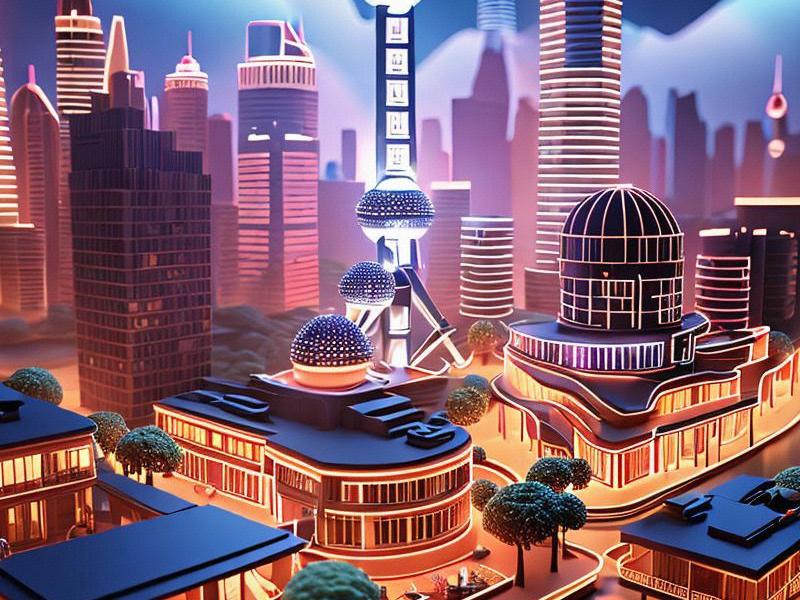As the city of Shanghai continues to evolve, its entertainment scene is experiencing a remarkable renaissance. Among the most vibrant aspects of this transformation are the city's entertainment clubs, which have become hubs for nightlife, cultural exchange, and social interaction. This article delves into the dynamic world of Shanghai's entertainment clubs, exploring their history, current trends, and the factors contributing to their resurgence.

Shanghai, a metropolis that has long been synonymous with cosmopolitan allure, is witnessing a remarkable renaissance in its entertainment scene. At the heart of this transformation lies the city's entertainment clubs, which have become the epicenters of nightlife, cultural exchange, and social interaction. These establishments, with their pulsating beats and dazzling lights, offer a haven for the city's youth and a playground for the international community, reflecting the dynamic spirit of modern Shanghai.
The history of Shanghai's entertainment clubs dates back to the early 20th century, during the city's heyday as a global trade hub. The French Concession, in particular, became known for its cabarets, jazz bars, and dance halls, attracting artists, writers, and expatriates from around the world. These venues were not just places to drink and dance but also centers of intellectual and artistic activity, where ideas and cultures collided and flourished.
However, the golden age of Shanghai's entertainment clubs came to an abrupt end with the onset of World War II and the subsequent political upheavals. Many of these establishments were forced to close, and the city's nightlife scene entered a period of dormancy. It wasn't until the economic reforms of the late 20th century that Shanghai began to rediscover its love for entertainment and nightlife.
In recent years, Shanghai's entertainment clubs have undergone a dramatic transformation, emerging as some of the most sophisticated and diverse venues in Asia. This resurgence can be attributed to several factors, including the city's rapid economic growth, increasing disposable incomes, and a growing interest in nightlife culture among the younger generation.
上海龙凤419会所
One of the key drivers of this transformation has been the influx of international talent and investment. Many of Shanghai's top clubs are now owned and operated by foreign entrepreneurs who bring with them cutting-edge technology, innovative concepts, and a global perspective. These establishments often feature state-of-the-art sound systems, immersive lighting effects, and world-class DJs, creating an unparalleled entertainment experience.
Another factor contributing to the resurgence of Shanghai's entertainment clubs is the city's vibrant arts and culture scene. As Shanghai continues to position itself as a global cultural capital, its entertainment clubs have become important platforms for showcasing local and international artists. From live music performances to art exhibitions, these venues offer a unique blend of entertainment and culture, attracting a diverse audience from all walks of life.
The current trend in Shanghai's entertainment clubs is towards sustainability and inclusivity. Many clubs are now incorporating eco-friendly practices, such as energy-efficient lighting and waste reduction initiatives, in an effort to minimize their environmental impact. Additionally, there is a growing emphasis on creating inclusive spaces that welcome people from all backgrounds and promote social interaction.
上海花千坊爱上海
One notable example of this trend is the "Green Roof Club," a pioneering establishment that combines cutting-edge entertainment with sustainable design. Located on the rooftop of a historic building in the former French Concession, the Green Roof Club features a lush green roof, solar panels, and rainwater harvesting systems. Inside, guests can enjoy a range of activities, from DJ sets and live music performances to art exhibitions and food and beverage options sourced from local organic farms.
Another example is the "Inclusive Arts Club," which aims to break down barriers and crteeaa welcoming environment for people of all ages, genders, and abilities. This club hosts a variety of events, including open mic nights, comedy shows, and workshops, fostering a sense of community and belonging among its patrons.
The resurgence of Shanghai's entertainment clubs has also had a significant impact on the city's economy and real estate market. As these venues attract large crowds of visitors, they generate substantial revenue for local businesses, including restaurants, bars, and retail stores. Additionally, the demand for prime locations in areas like the Bund, Nanjing Road, and Xintiandi has driven up property values, making these neighborhoods some of the most desirable in the city.
上海喝茶服务vx
However, the rapid growth of Shanghai's entertainment clubs has also raised concerns about noise pollution, safety, and the potential for over-commercialization. To address these issues, the city government has implemented a series of regulations aimed at ensuring that entertainment venues operate in a responsible and sustainable manner. These regulations include restrictions on operating hours, noise level limits, and requirements for fire safety and security measures.
Despite these challenges, Shanghai's entertainment clubs continue to thrive, reflecting the city's dynamic spirit and its commitment to innovation and cultural exchange. As the city looks to the future, it is clear that its entertainment scene will remain a vital part of its identity, offering a unique and unforgettable experience for visitors and residents alike.
In conclusion, Shanghai's entertainment clubs are at the forefront of the city's nightlife renaissance, offering a vibrant and diverse range of experiences that reflect the dynamic spirit of modern Shanghai. From their rich history to their current trends, these establishments are a testament to the city's ability to adapt and innovate in the face of change. As Shanghai continues to grow and evolve, its entertainment clubs will undoubtedly play a crucial role in shaping the city's cultural landscape and attracting visitors from around the world.